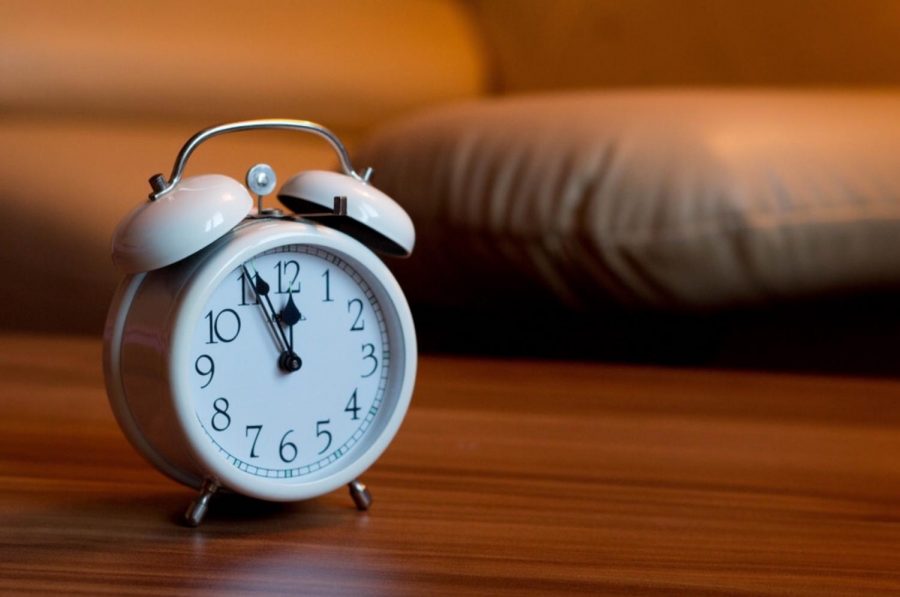Hit the Snooze?
Later School Start Time Would Help Students
As more and more studies and research prove that sleep is an essential part of teenagers’ health and development, some schools have pushed back their start times to be later in the morning. Sleep deprivation is extremely common among high school students. The problem is that high schoolers need time for school, homework, extracurricular activities, clubs, sports, and their social life. While trying to balance these things and fit them into busy schedules, teens do not have enough time for sleep.
According to the National Sleep Foundation, teenagers need roughly nine hours of sleep each night, but in reality they are averaging less than seven. Living on a lack of sleep can cause health problems for teens, both mentally and physically. Studies have shown that not getting enough sleep directly leads to poorer performances in school. Teenagers who are lacking sleep have greater trouble focusing and engaging in the classroom. It is harder to retain information, and cope with stress. The National Sleep Foundation says that sleep deprivation during teenage years increases the risks of depression, emotional and behavioral problems, tobacco and alcohol use, as well as lowering students’ ability to do well in academics and athletics.
High schoolers struggle to get enough sleep due to the stressful homework load that they receive while trying to squeeze in time for extracurricular activities, sports, family, friends, and their social lives.
McQuaid Jesuit school counselor Mark Bruce agrees that high schoolers lack sleep. “Students are definitely not getting enough sleep. I would recommend at least eight hours of sleep a night, and I think the average student gets considerably less than that,” he said.
Moving the start time of school to later in the morning can fix high school sleep problems. Starting school an hour or two later would allow students to sleep longer, and allow them to accomplish their daily tasks with more attentiveness and less drowsiness. This would help students cope with the pressure of their busy schedules, and bring more balance to their lives. It would allow students to have more time to get their schoolwork done, go to sports practices, club meetings, and social activities.
“Yes, I think theoretically starting school later in the morning should lead to students reaching that goal of eight hours of sleep a night,” said Bruce.
Arguments against delaying the start times of schools are based around the challenges that would come with the change. It would be a difficult transition because it would mean less time in the day for sports practices and games, clubs, and other extracurricular activities. Bus schedules as well as other school activities and functions would also have to be adjusted.
Many schools in America have already pushed back their early morning start times. According to reporting by National Public Radio, schools in Seattle have changed their start times by making them an hour later. With the later starts, students in Seattle are getting on average 34 more minutes of sleep per night. With such a small change causing significant success, Seattle schools are setting a precedent that more U.S. schools may start to follow.
The success of Seattle schools and other schools across America prompts the question: should schools in Rochester, and even McQuaid, consider starting school later?
“School starting later in the morning would allow me to get more sleep on a nightly basis,” said McQuaid junior Troy Palazzolo. “The workload junior year is a lot, and at times it is difficult to get everything done and still get enough sleep.”
Junior Pranav Senthil Kumar would also be open to a later starting time.
“I could definitely see how starting school later in the morning would be beneficial to my classmates and myself,” Kumar said. “I would be fine with pushing back the start of school.”
Later start times for school is certainly a compelling case. As proven by the schools that have already tried it, later start times lead to more sleep and fewer sleep-deprived students. More sleep means healthier, better students in the classroom and athletes on the playing field.

Blatter is a junior who first came to McQuaid Jesuit in seventh grade. He is a McQuaid baseball and basketball player. In his spare time he enjoys spending...






